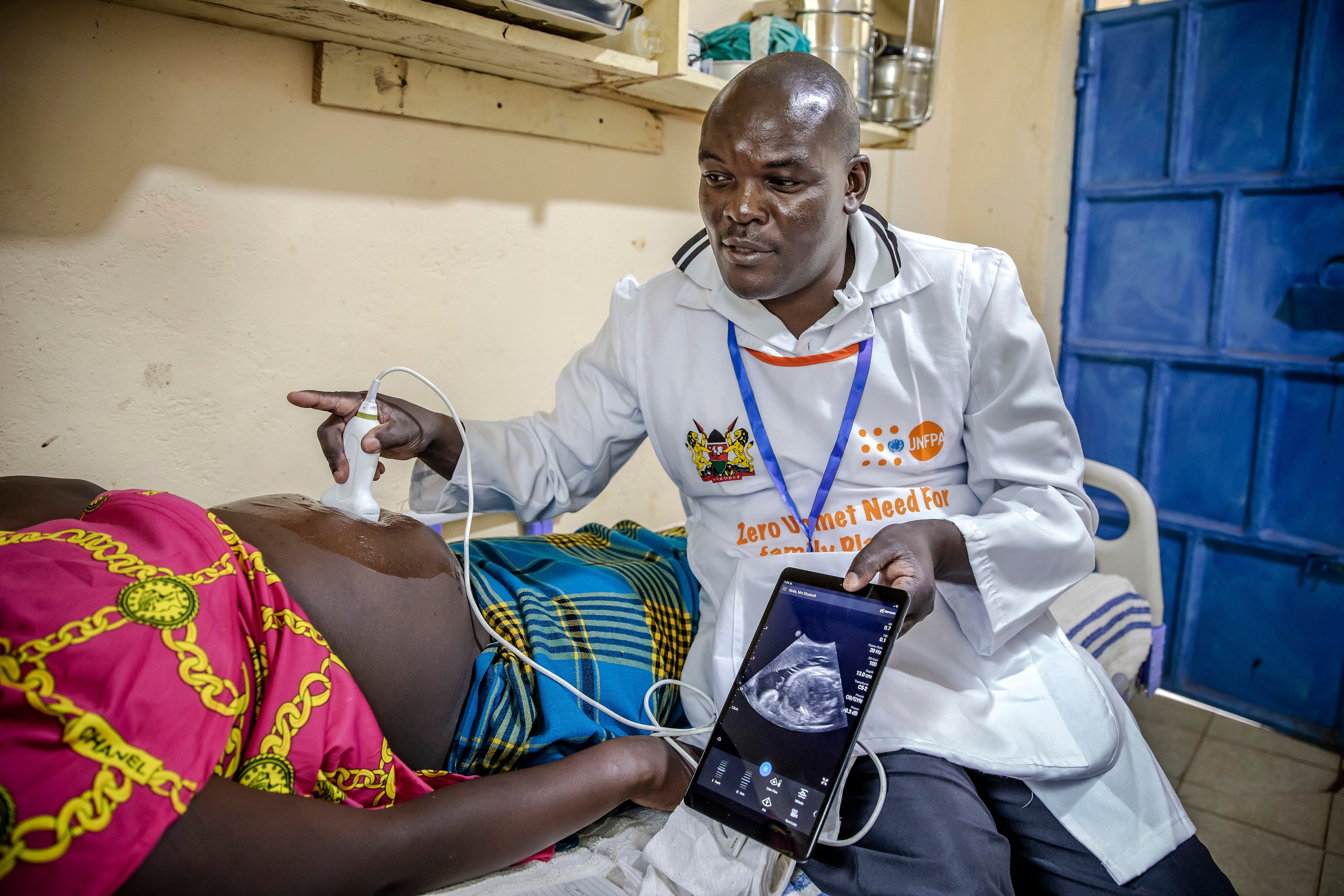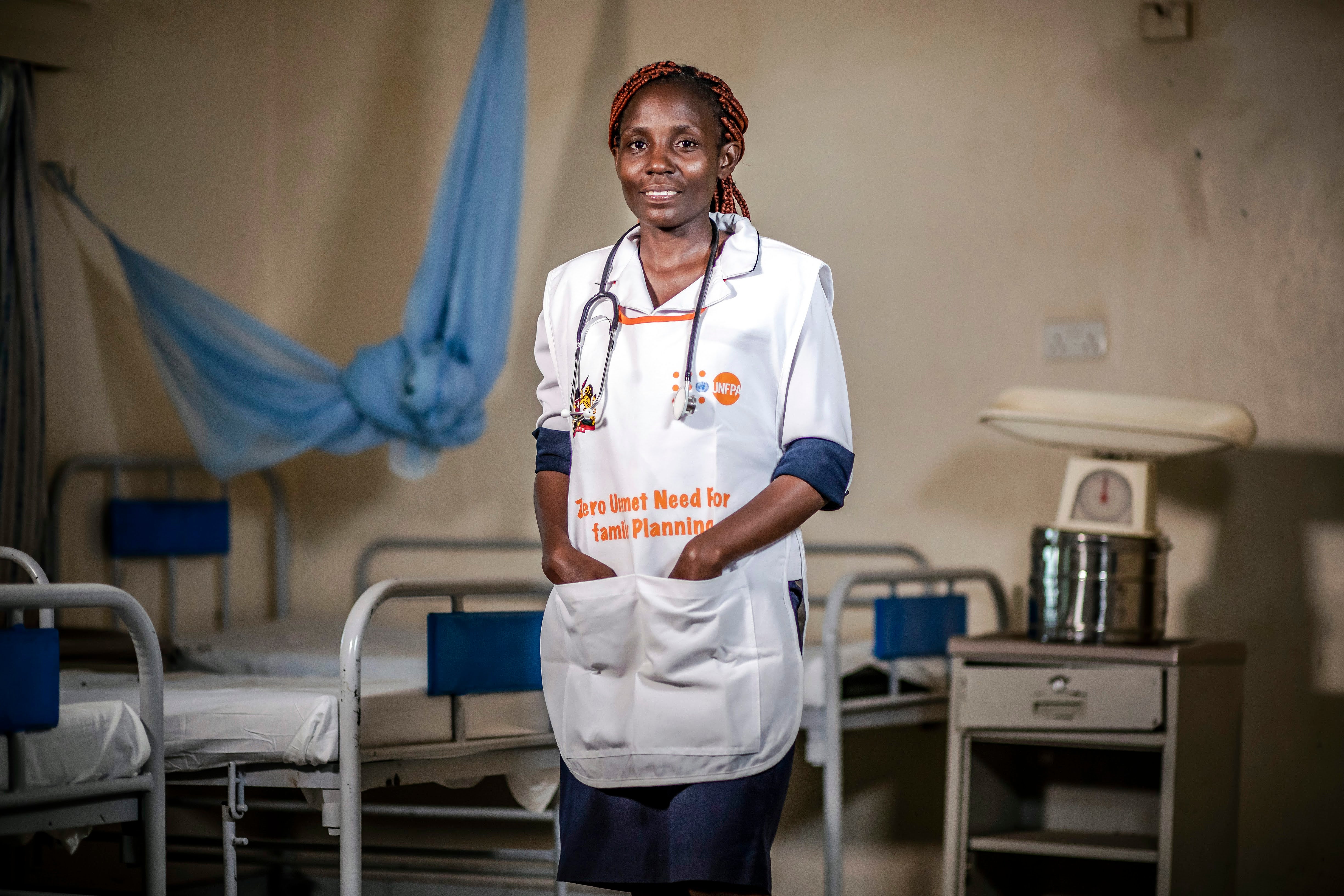“Nothing breaks a midwife’s heart more than losing a mother or baby to a complication that could have been managed if identified earlier on in the pregnancy,” says senior midwife Jackson Nyanamba. Over the course of his 20-year career in midwifery, he has delivered hundreds of babies at different public health facilities in the country. At the Ntimaru Sub-County Hospital in Migori, Kenya, Mr. Nyanamba is in charge of a team of 11 nurse-midwives. As in many other rural and remote health facilities in Kenya, nurses and midwives make up the majority of the health workforce at the hospital.
“Most women who visit this facility come from low socio-economic backgrounds and can only access services from public health facilities. For them, getting the right care from well-trained public health workers can prove to be the difference between life and death,” says Mr. Nyanamba.
In November 2020, Mr. Nyanamba and three other midwives from Ntimaru Sub-County Hospital attended training on obstetric ultrasonography organized by UNFPA in partnership with the AMREF International University and Philips Foundation. With help from experienced sonographers from the Society of Radiographers in Kenya, the midwives learnt how to efficiently perform an obstetric ultrasound examination to determine fetal viability, identify multiple pregnancies, detect fetal abnormalities, among other issues.

Makararangwe Dispensary in Makararangwe, Migori County, Kenya. © UNFPA/Luis Tato
So far, the program has trained 68 midwives and nurses in Migori, Kisii, Homabay, and Kajiado counties who are selected from remote and hard to reach health facilities with poor maternal health indicators. In addition to the training, the midwives also receive a portable ultrasound device for use in providing services at their health facilities.
Quality of care
More than 2500 mothers have been screened across the 4 counties using the portable ultrasound devices. “When screening mothers, one of the most frequent complications we see is when the baby is lying in a breech position during the last stages of pregnancy. In such cases, we are able to advise the mother and help her in planning the safe delivery of a healthy baby,” says Mellyn Awuor, a midwife at Magunga level 4 hospital in HomaBay county.

health facilities, helping save the lives of mothers and babies. © UNFPA/Luis Tato
“We are also able to identify in advance, conditions which can lead to emergencies such as excessive bleeding during the delivery process. This ensures that we go into the delivery room well prepared to respond and provide life-saving emergency care to both mother and baby,” says Mr. Nyamamba.
Because the device is portable, midwives can conduct ante-natal outreach to even smaller and more remote facilities in the wider location, thereby reaching more women with the service.
Improved access saves lives
Screening is offered free of charge to all pregnant mothers at facilities with the Lumify portable ultrasound devices. “Before getting the device, we had to refer expectant mothers to higher level facilities that are 25-60 kilometers away,” says Mr. Nyanamamba.
Those who could not afford transport expenses or the Kshs 800 ($8) ultrasound fee charged at these facilities would opt to go home and only return when it is time to deliver, at which point it might be too late to prevent injury or death from a complication.
“Since we started offering free ultrasound services, expectant mothers are attending their ante-natal appointments because they know we have this device that shows how the baby is doing, while ensuring a safe pregnancy,” he adds.
Whereas WHO guidelines recommend at least one ultrasound scan before 24 weeks for a positive pregnancy experience, barriers such as cost of care, inadequate diagnostic services, and a shortage of qualified health professionals often limit the quality of antenatal care for many women. Through the Maternal and Newborn Health Thematic Fund (MHTF), UNFPA supports the education and training of midwives in Kenya, providing them with tools to improve the quality of care and equitable access to sexual and reproductive health services.
“An estimated 5,000 women and girls die each year in Kenya due to pregnancy or birth complications. With the right skills and equipment such as these portable ultrasound devices, midwives can help avert 65% of these deaths,” says UNFPA Kenya Reproductive Health Advisor Dr. Dan Okoro.



